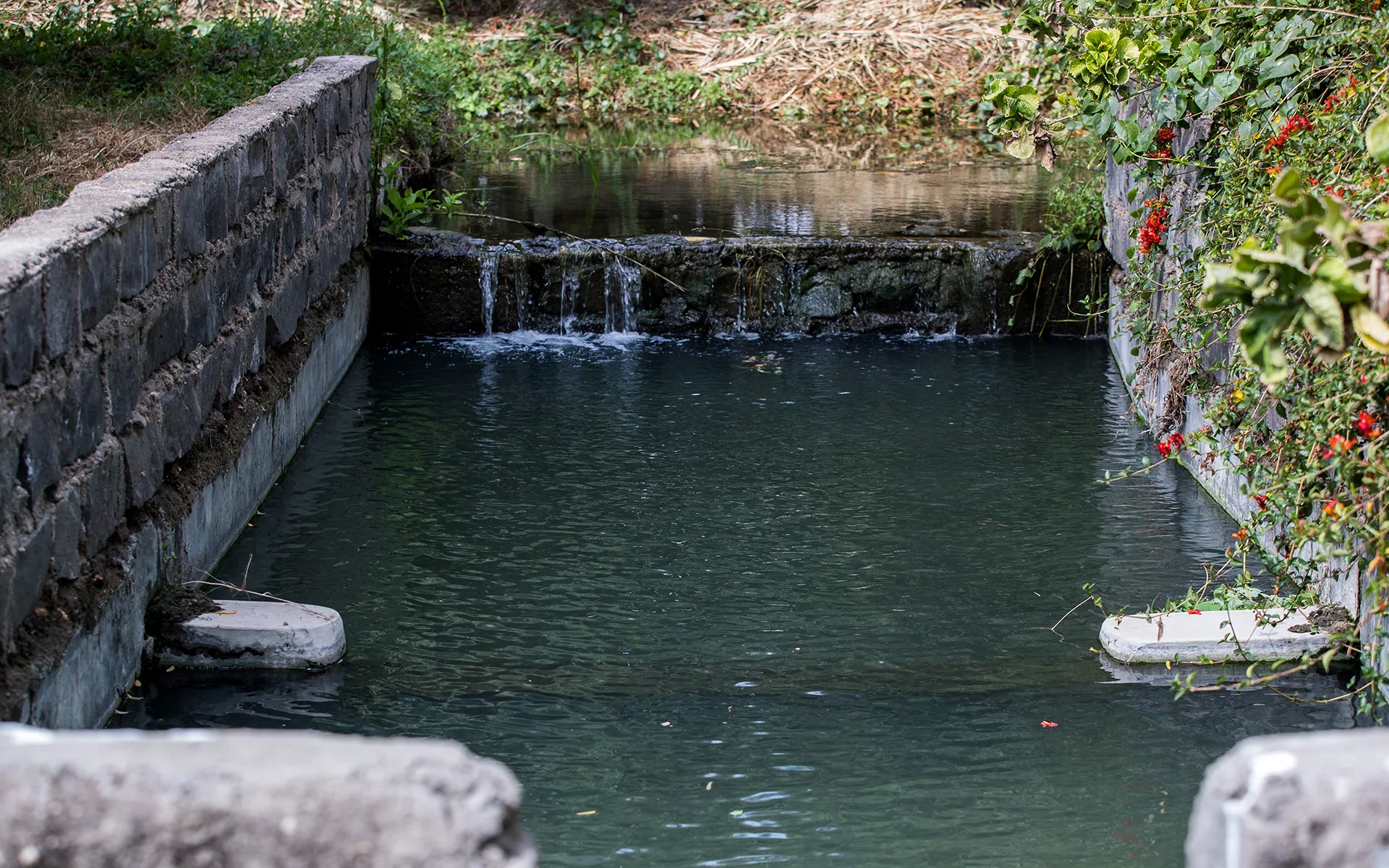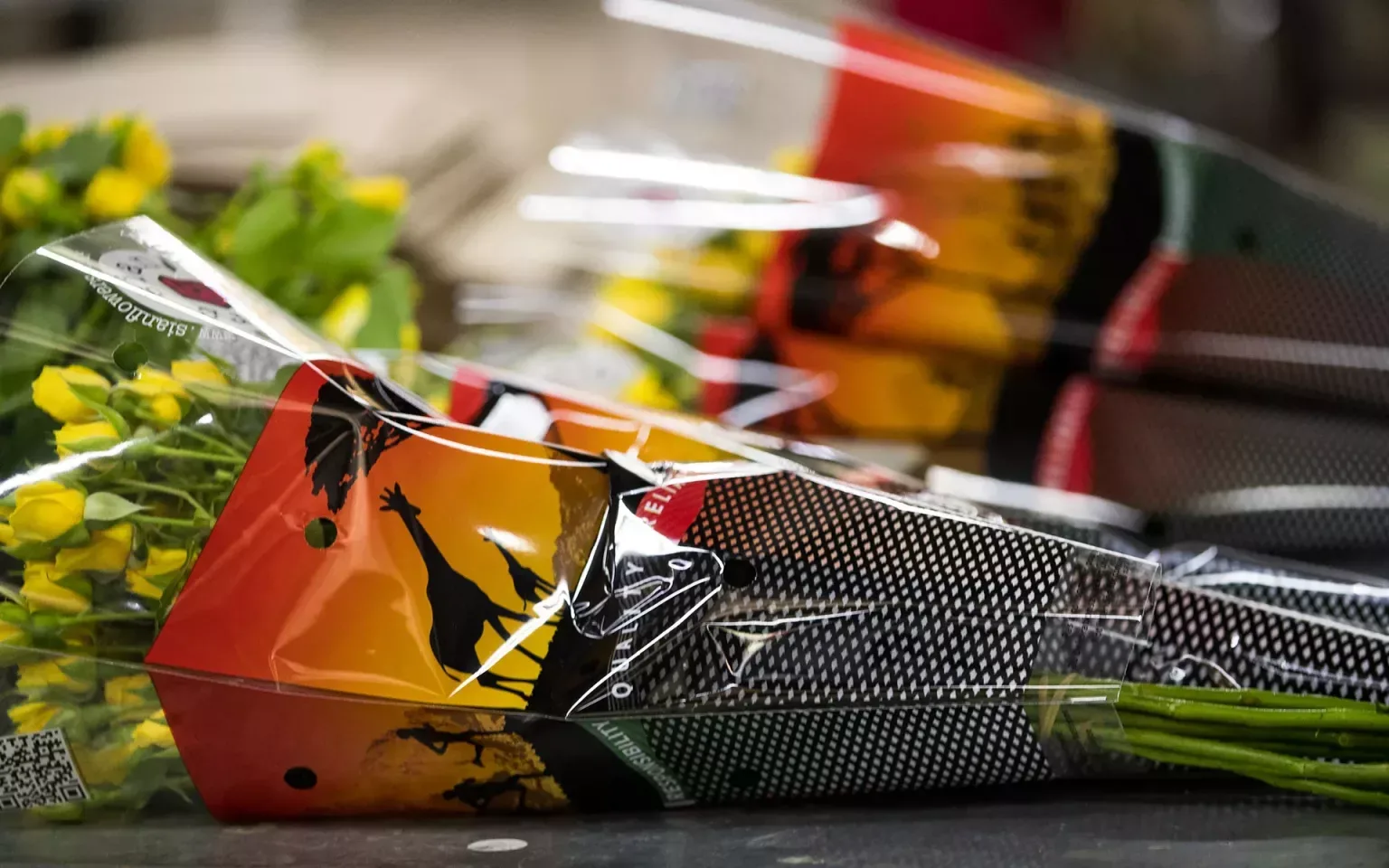From a budding family flower farm to the leading producer of floriculture in Kenya, Executive Director, Chris Kulei, walks us through the operations of Sian Flowers.
AN INDUSTRY IN BLOOM
Among the vast plains and volcanic mountains of equatorial Kenya, lies its capital, Nairobi – home to the four floriculture farms of Sian Flowers.
Kenya’s proximity to the Indian Ocean plus Nairobi’s high altitude equals a subtropical highland climate which makes it an ideal location for the floriculture industry. This is evidenced by a significant proportion of the UK’s flowers originating from Kenya.
When Sian Flowers began with a single rose farm in 1989, it comprised around 20 hectares (ha) of land. It has since blossomed to over 170 ha spread across multiple farms.
“We own three of the farms, started by my father, and one is owned by my uncle, so we are the ultimate definition of a family business,” opens Chris Kulei, Executive Director of Sian Flowers.
Kulei grew up around the farms and would return at every opportunity when studying in the UK, so it was an easy choice to work in the family business after he graduated.
“The floriculture industry is a huge employer and one of the biggest foreign exchange market income earners for the Kenyan economy. It has been a tough year because of the cost of input and freight, and the cost-of-living crises here and in Europe, but the Kenyan floriculture industry is in a great place,” he shares.
“A lot of flower-growing areas around the rest of the world are not able to produce on the same scale or with the consistent quality that we are able to.”
Chris Kulei, Executive Director, Sian Flowers
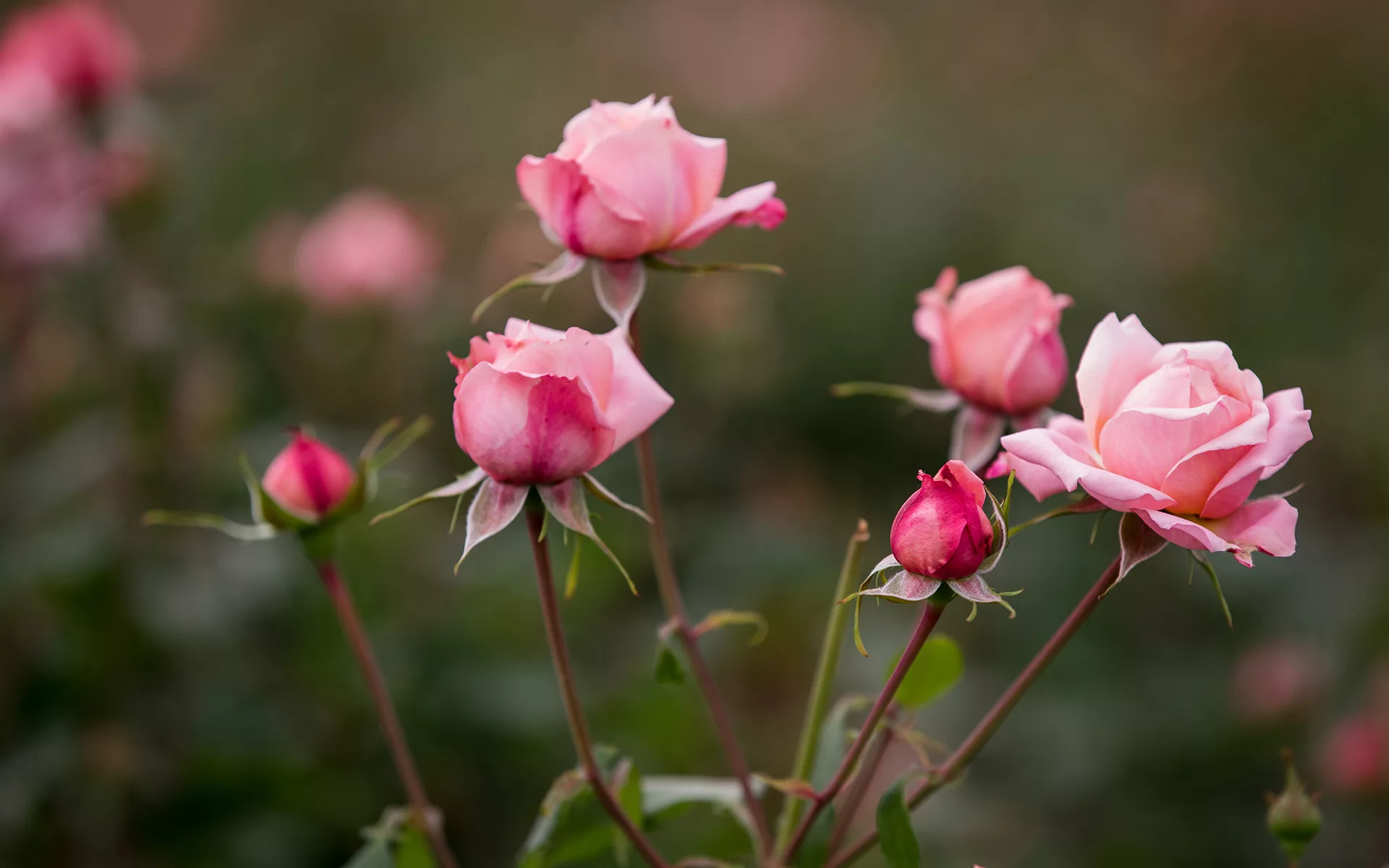
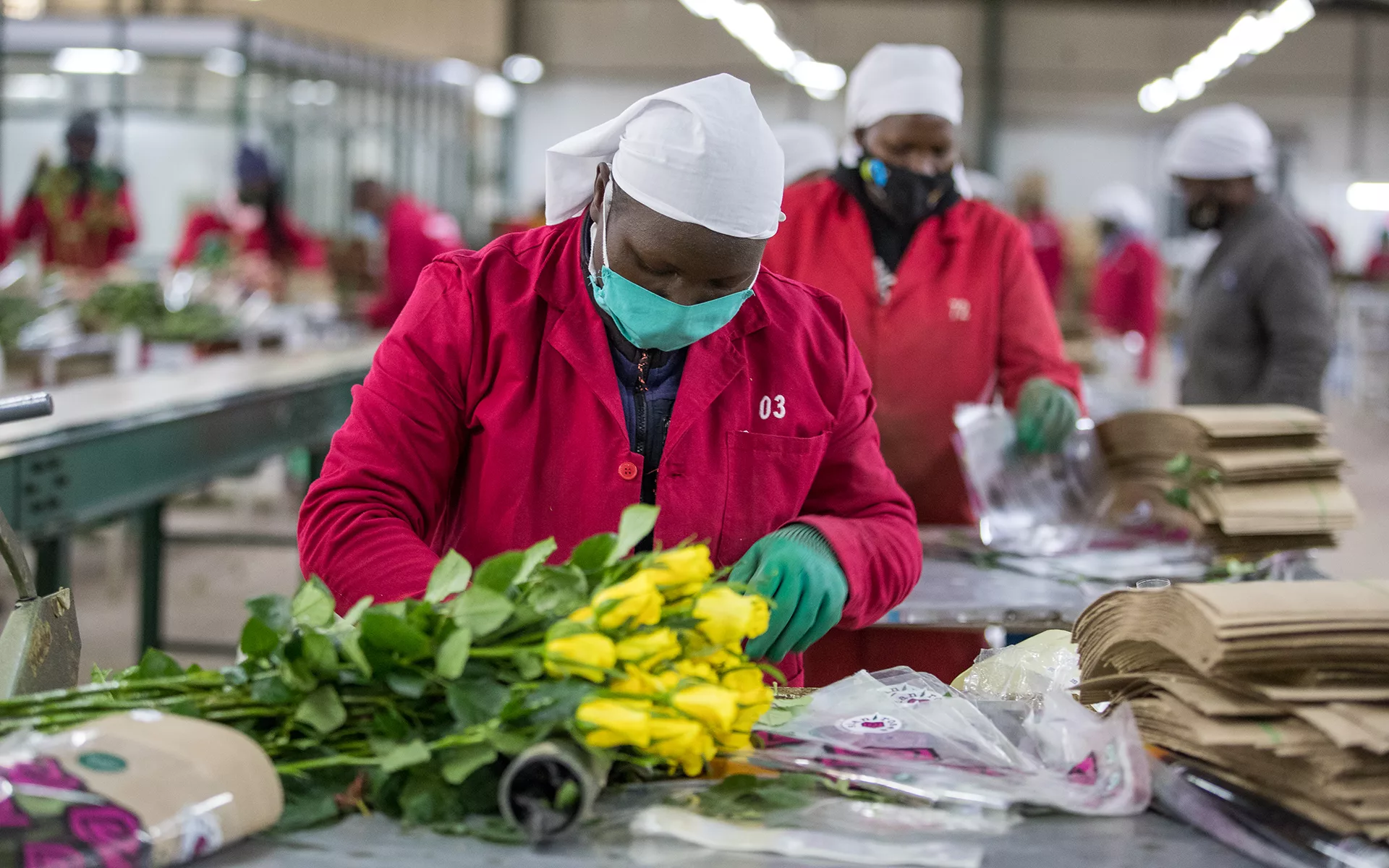
SUSTAINABLE STEMS
Kenyan products have been under scrutiny from the early stages, whether for their environmental and community impact, or the standard of working conditions. However, Sian Flowers approached these issues by joining the Kenya Flower Council, where Kulei is a director, upon its inception in 1996.
“It was a way to certify, ensure, and inspect members. Customers can also have confidence that the products do not have a negative impact on the environment or communities, and the workers are given a fair liveable wage,” affirms Kulei.
Sian Flowers engages in programmes to enrich the communities where the farms are located, and all four sites are Fairtrade farms. Therefore, the company ensures it holds itself to a high standard.
The farms use integrated pest management (IPM) in a sustainable approach, minimising health and environmental risks.
“We only use chemicals that are kept on pre-approved lists, so they have no or very low risk of harmful residue levels. All the farms have wetlands and any water leaving the farms passes through these wetlands, and the water that now goes back into the water table is clean,” Kulei says proudly.
In terms of sustainability, one key project is already underway as Sian Flowers has begun carbon footprint mapping by engaging its partners to help it become a certified carbon neutral business.
However, the first step is solar panels. As Kulei details, “we have invested in solar power generation on all our farms; 40 percent of our energy is from these solar panels. Kenya is already powered by 80 – 85 percent renewable energy through the grid.”
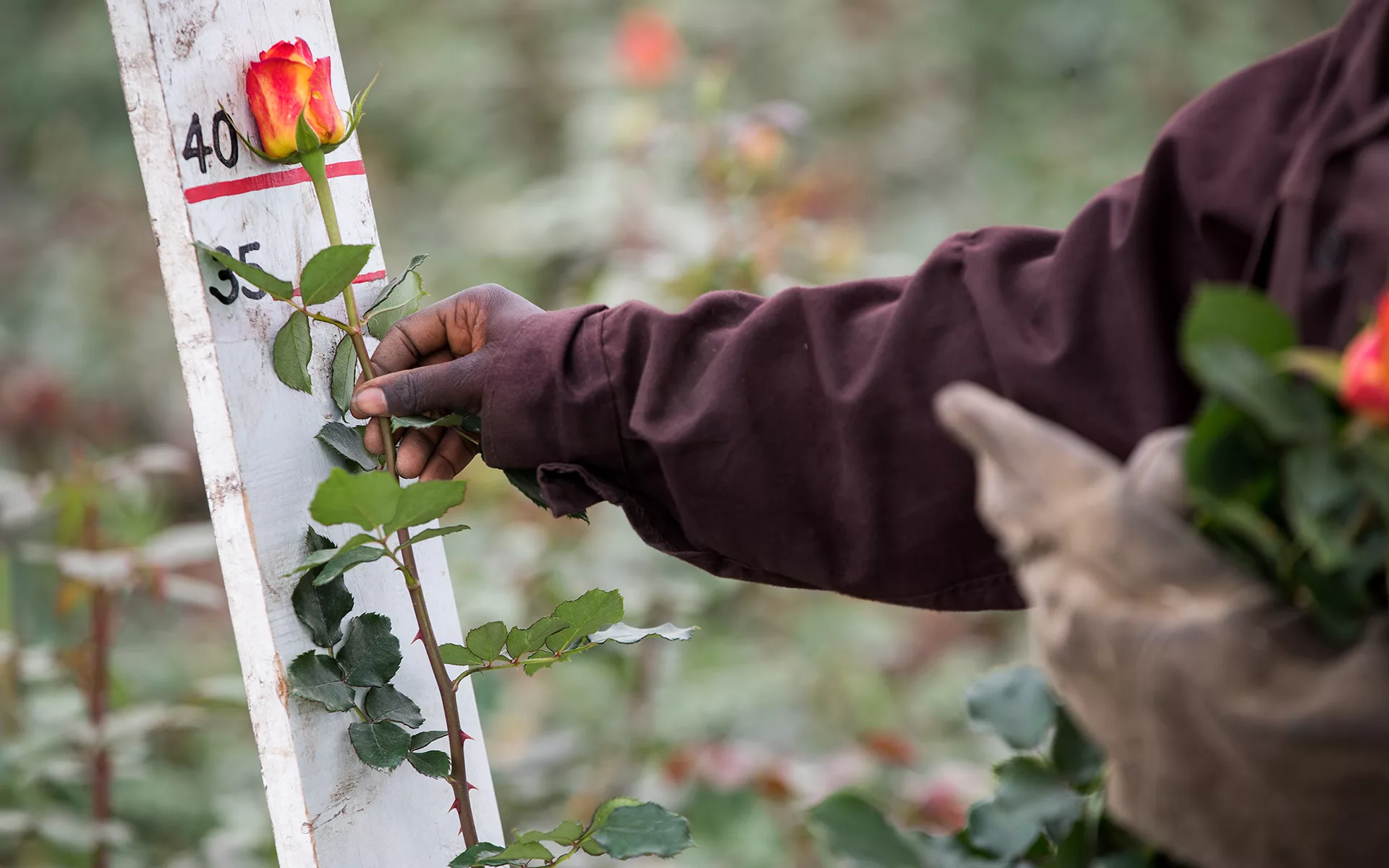
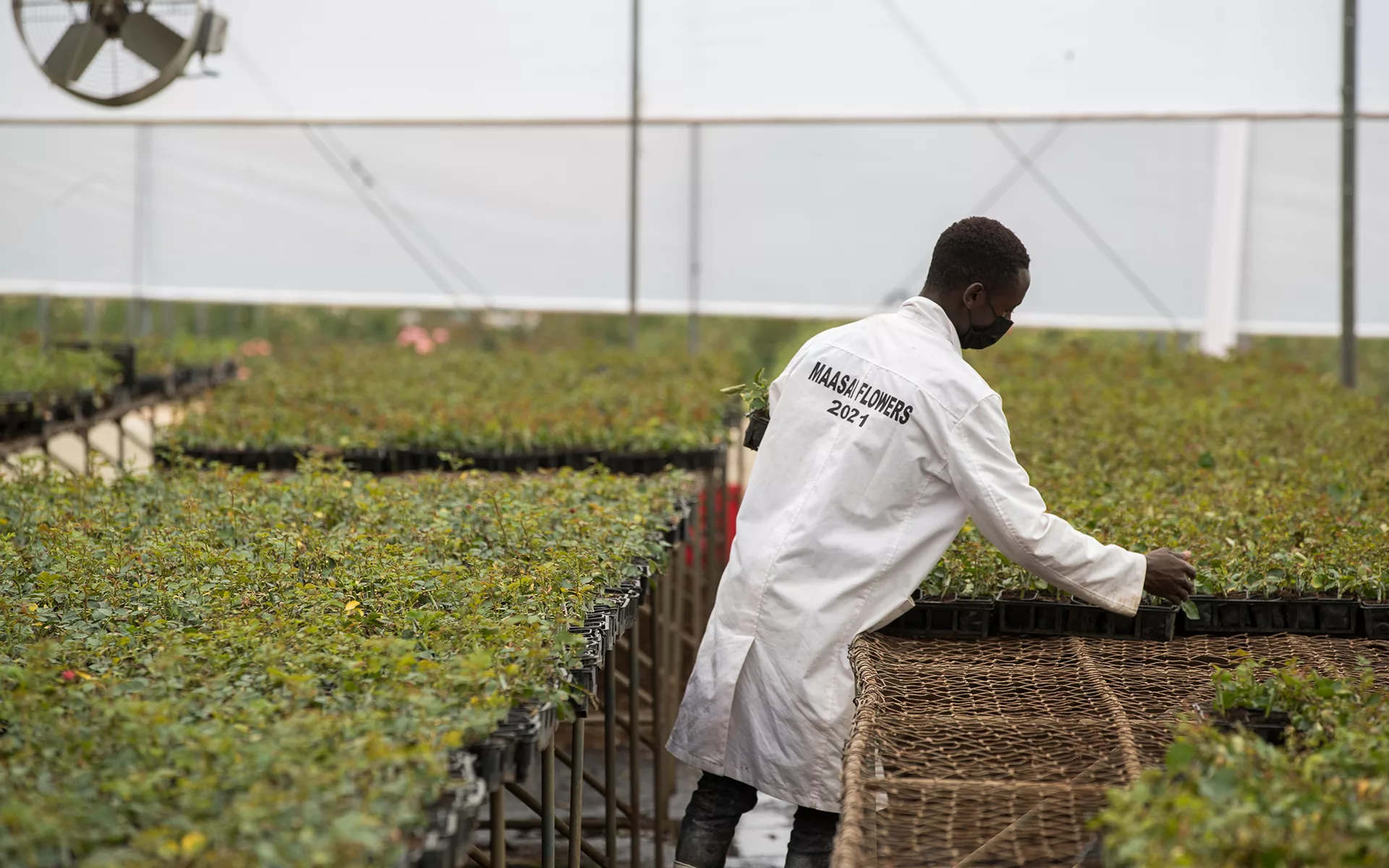
STALK TALL
Sian Flowers’ two farms in Eldoret are situated at above 2,000 metres, which is a relatively high altitude. It is there that the premium longer-length varieties of flowers are produced, in a climate that is better for growing summer flowers outdoors.
“In the location where we first started with roses, altitude, night-time temperatures, and soil were not as much of a factor because we used hydroponics. At two of our locations, we use hydroponics and soil,” Kulei reveals.
One of the farms is a low altitude farm which produces high quality and high quantity smaller head flowers. To escape the competition, however, the company diversified into other varieties.
“Our fourth farm is a non-rose farm; it was added in 2019 when we rebranded from our original name – Sian Roses,” recalls Kulei.
As Kenya is a particularly important source of roses, it has myriad farms to accommodate the demand. Indeed, the country supplies one third of all roses sold in Europe; to distinguish Sian Flowers from the competition, Kulei’s father and uncle therefore made the bold decision to invest in spray roses.
“They were a niche but high value product, and now we are one of the biggest growers of spray roses in the world.”
Sian Flowers was born out of a demand for choice, with the company’s evolution meeting the needs of customers who want a full bouquet in their homes rather than just roses.
“The supermarkets offer a mixed bunch of roses as well as bouquets that are put together at considerable cost by companies in Europe, so we thought, why can’t we do it?”
Customers have more options which include carnations, chrysanthemums, and greenery, along with other products.
“We thought we would save a lot of time and expense by sending them ready made in a box. We can do a range of bouquets throughout the year,” Kulei adds.
Not only have the company’s products changed, but its international trade has also altered. Cut flowers are now Kenya’s second largest export after tea, and one of the largest sources of employment.
“We originally supplied to auction in the Netherlands. We were 100 percent auction for the first 10 – 15 years, now we are 30 percent auction in Holland and 70 percent direct business to our clients across the world,” he informs us.
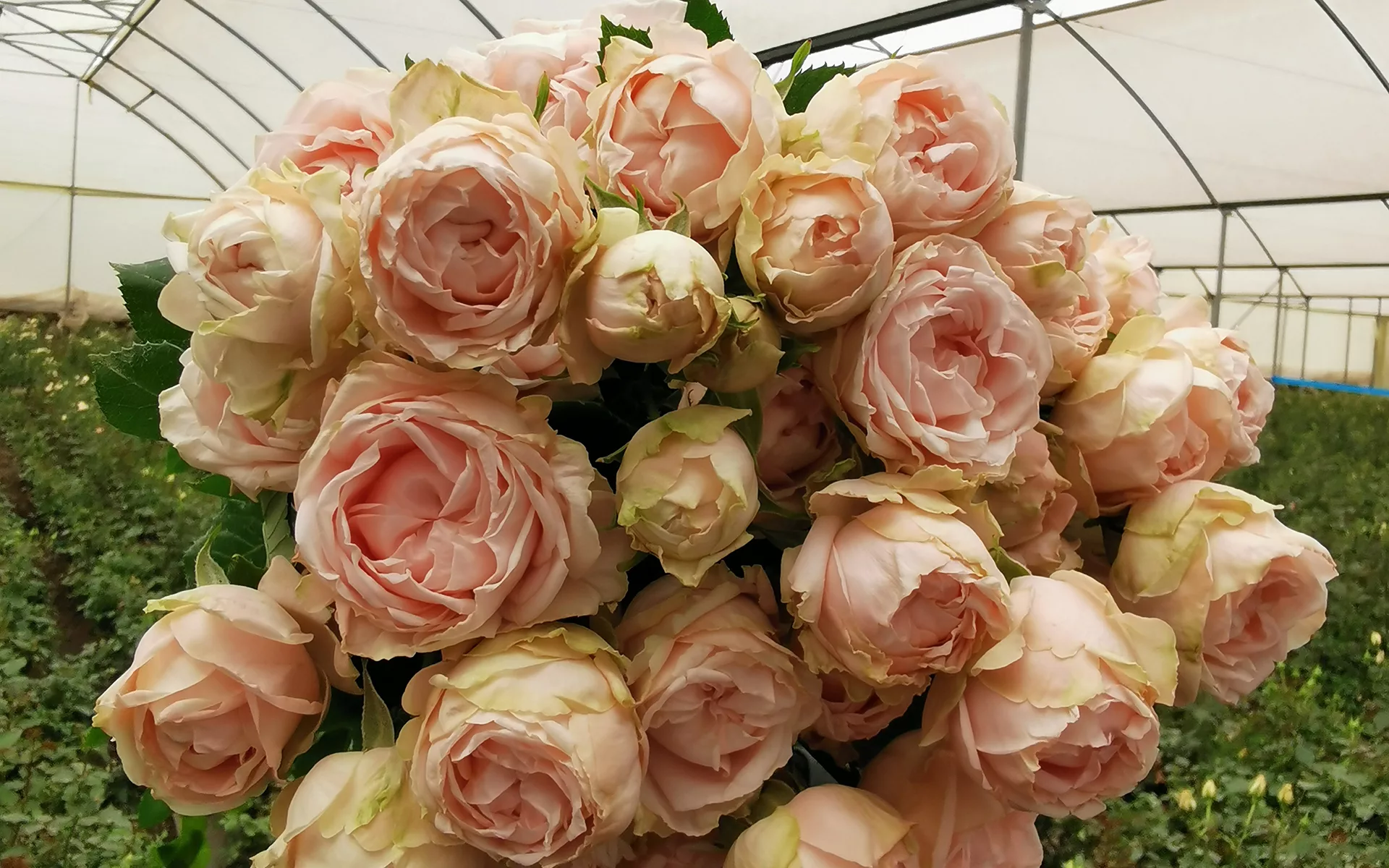
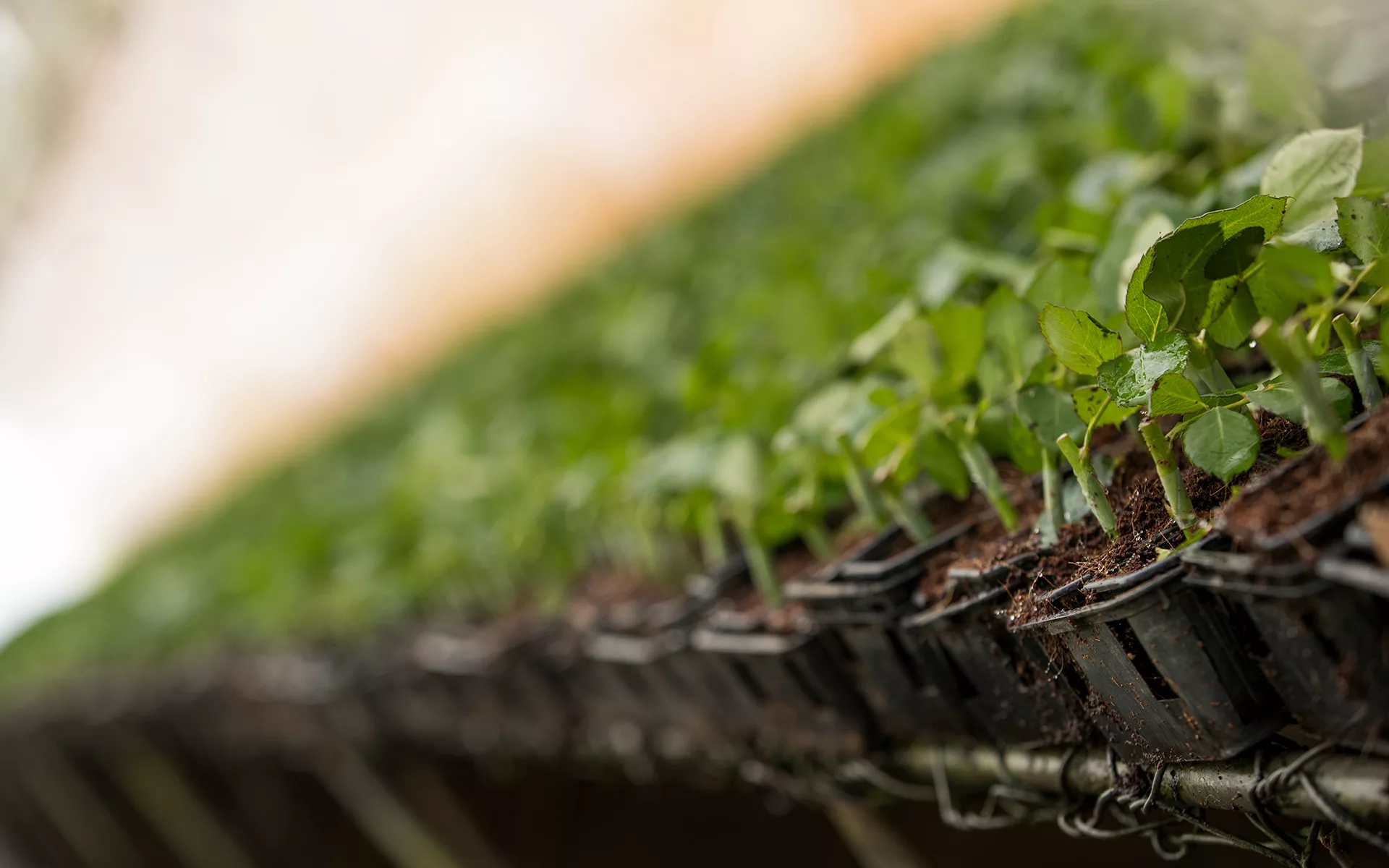
EVERYTHING IS COMING UP ROSES
The future of Sian Flowers includes expansion to a fifth farm to join the two Eldoret ventures, the site in Kitengela, and the Agriflora farm in Nakuru.
Meanwhile, Kulei himself has joined the board of a marketing brand called World of Sprayroses®. It is a collective of global partners, including other farms from Kenya and parts of East Africa.
“In reality, we are rival farms, but it is exciting to see a group of farmers all sitting together and contributing equally every few months to build up a brand,” Kulei says enthusiastically.
“We are trying to take spray roses and make them less of a niche product, which they were 10 – 12 years ago. We want to make them more mainstream because they are a beautiful product. They have a great vase life, great lengths, and a wide range of colours,” he adds.
All these qualities offer customers value, and because they are so aesthetically pleasing, Kulei encourages people to visit the World of Sprayroses® social media pages to see the beautiful bouquets for themselves.
“We have invested in mood boards for inspiration and there is a florist that we engage and create with to introduce people to the product.”
Despite the efforts to make spray roses more commercial, niche markets are still just as important as the existing lines at Sian Flowers.
“The way global logistics is these days, whether it is a single box of 300 stems, or bigger, the world is getting smaller, so niche markets are crucial because they are the trend setters and makers,” Kulei observes.
2023 is set to become another exciting year for Kulei and the family flower farms, with projects and investments to ensure Kenyan floriculture continues to blossom.
